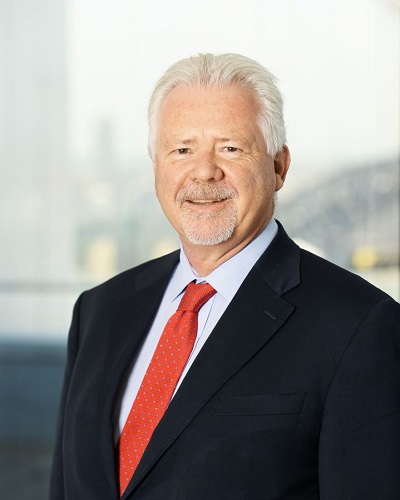
What is the appetite of the financial community to invest in new ventures taking place in the circular bioeconomy, particularly in the wake of Covid-19 and its impact on the global financial situation?
New Forests manages institutional investment in the forestry sector across Australia, New Zealand, South East Asia and the United States. We see a rising opportunity for the forestry sector to provide the feedstock for a whole range of new engineered wood construction materials, fiber-based packaging, cellulosic fabrics, bio-based materials, energy and fuels. We believe that there is a need to expand sustainably managed productive forestry plantations to increase the scale of consistent feedstocks for a rising bioeconomy-based demand. The Covid-19 has severely impacted many sectors of the economy, but in these economic disruptions, transitions are often accelerated. Climate change mitigation will emerge as a central driver of the forestry sector going forward, both via the concept of natural climate solutions and in the rising opportunities from the circular bioeconomy.
In a nutshell, what type of enterprises are you looking at when it comes to circular bioeconomy investment opportunities?
In our investment programs the forestry assets are the primary objective. However, we will invest in processing and infrastructure where it will support the returns from the forestry assets. We currently invest in conventional sawmilling operations, but are actively developing cross laminated timber and glue laminated timber facilities associated with our forestry assets. We are also exploring a composite decking product using plastic waste and sawmill waste as the feedstock. As a feedstock supplier we are also willing to enter into long term contracts with new innovative businesses whether that be for timber, wood fiber or woody biomass. As we expand our business in emerging markets, processing will become increasingly important in the investment strategy, to ensure we can deliver reliable investment returns. Our view is that processing hubs that can produce solid wood, wood fibre and biomass products together may well generate the best returns to the investor.
The World Bioeconomy Forum has a diverse range of high-level speakers and panellists, what are you hoping to achieve by taking part in the event, and what are your hopes for the future of the circular bioeconomy?
The shifts in building systems, materials, and energy are happening very quickly. We are looking to understand the status of various technologies, explore partnerships as a feedstock supplier, and potentially co-invest in processing technologies that can support our investment programs. The World Bioeconomy Forum is a great opportunity to learn about government policy, business and investment strategies, and the technologies that will underpin the circular bio-economy transition. There are a number of CEOs from businesses that have been leading the implementation of these products and markets. There are also government and inter-governmental organizations that can bring the ‘big picture’ thinking to this opportunity. While it is a virtual conference this year, I hope to continue to engage going forward as the forum returns to in person meetings. My view is that for a circular bioeconomy to really take hold we may need to increase the scale of the forestry sector 4-fold by 2050, and that will take substantial effort and investment flows.
The Sustainable Financing Panel discussion at the event will also include: Felipe Ortega Schlingmann, Deputy Advisor, European Investment Bank (EIB), Joško Bobanović, manager of the Sofinnova Industrial Biotechnology Fund, and Courtney Lowrance, Head of EMEA Sustainability & Corporate Transitions Group (SCT) Citi. The Panel will be moderated by Michael Nettersheim, founding partner at the European Circular Bioeconomy Fund, formerly responsible for bioeconomy related investments at BASF Venture Capital.
Five Minutes With… is a series of interviews being run by the WCBEF to highlight some of the high-level speakers and panellists taking part in the event this year. To view the whole full day programme and register for the event please visit https://wcbef.com.80-69-172-163.hostaan.fi/